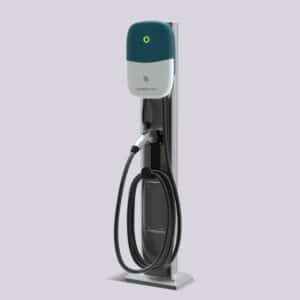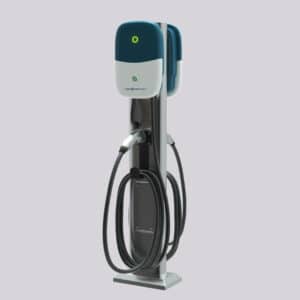- The Rise of Electric Vehicles
- Benefits of Installing an Electric Car Charging Station
- Impact on Property Value
- Cost Considerations and ROI
- Practical Steps for Installation
- Government Incentives and Rebates
- Future-Proofing Your Investment
- Conclusion
The popularity of electric vehicles (EVs) is rapidly increasing as more people seek environmentally friendly transportation options. As a result, the demand for EV infrastructure, such as charging stations, is also rising. Installing an electric car charging station can significantly enhance the value of both residential and commercial properties. This article explores how EV charging stations contribute to property value enhancement.
The Rise of Electric Vehicles
The adoption of electric vehicles has seen a significant uptick in recent years. According to the International Energy Agency (IEA), the global electric car stock surpassed 10 million in 2020, marking a 43% increase over the previous year. Projections indicate that EV market growth will continue, with the IEA forecasting that there will be approximately 145 million electric vehicles on the road by 2030. This rapid growth highlights the importance of developing the necessary infrastructure to support EV users.
The availability of charging stations is critical to the widespread adoption of electric vehicles. Without convenient access to charging, potential EV buyers might hesitate to make the switch from traditional gasoline-powered vehicles. As such, properties equipped with EV charging stations can cater to the growing number of EV owners, thereby increasing their appeal and value.
Benefits of Installing an Electric Car Charging Station
- Increased Property Appeal: One of the most immediate benefits of installing an EV charging station is the increased appeal of the property to environmentally conscious tenants and buyers. People who are committed to reducing their carbon footprint are more likely to be attracted to properties that support their green lifestyle. An EV charging station signals that the property owner is forward-thinking and committed to sustainability, enhancing the property’s modern image.
- Competitive Advantage: In a competitive real estate market, having an EV charging station can set a property apart from others. As the demand for EV infrastructure grows, properties with charging stations will become more desirable. This competitive edge can be particularly beneficial in areas with high concentrations of environmentally conscious consumers.
- Higher Occupancy Rates: For rental properties, an EV charging station can lead to higher occupancy rates. Tenants who own electric vehicles will prefer living in a place where they can conveniently charge their cars. This convenience can also appeal to a broader demographic, including young professionals and families who are increasingly considering EVs as a viable option.
Impact on Property Value
- Residential Properties: Case studies have shown that residential properties with EV charging stations can experience a significant boost in value. For instance, a survey by Realtor.com found that homes with EV charging stations sold faster and at higher prices compared to similar properties without charging facilities. The financial benefits include not only a higher resale value but also a quicker sales process, making these properties more attractive to potential buyers.
- Commercial Properties: Commercial properties also stand to gain from installing EV charging stations. Businesses can attract more tenants and customers by providing EV charging options, leading to increased lease rates and improved tenant retention. A study conducted by the National Renewable Energy Laboratory (NREL) found that commercial properties with EV charging stations reported higher occupancy rates and longer lease terms. These benefits translate to a more stable and lucrative investment for property owners.
Cost Considerations and ROI
- Initial Installation Costs and Available Incentives. The cost of installing an EV charging station can vary widely depending on the type of charger and the complexity of the installation. Level 1 chargers are the least expensive to install, while Level 2 and Level 3 chargers require more substantial investments. However, various incentives and rebates are available at the federal, state, and local levels to offset these costs. Property owners should research and take advantage of these financial incentives to reduce the upfront investment.
- Long-Term Savings and Revenue Generation. Beyond the initial installation costs, EV charging stations can generate long-term savings and revenue. Property owners can charge users for the electricity consumed, creating a new revenue stream. Additionally, properties with EV charging stations may experience lower vacancy rates and higher rental or lease prices, contributing to increased overall revenue.
- Return on Investment (ROI) Analysis. The return on investment for installing EV charging stations can be significant. A thorough ROI analysis should consider the initial costs, available incentives, ongoing maintenance expenses, and the potential for increased property value and revenue generation. Many property owners find that the long-term benefits far outweigh the initial investment, making EV charging stations a financially sound addition.
Practical Steps for Installation
- Assessment and Planning: The first step in installing an EV charging station is to assess the property’s electrical capacity. This includes evaluating the existing infrastructure to determine if upgrades are necessary. Property owners should also consider the type of charging station that best meets their needs, whether it be Level 1, Level 2, or Level 3 chargers.
- Installation Process: Finding qualified installers is crucial to ensuring a successful installation. Property owners should seek out installers with experience in EV charging stations and a thorough understanding of local regulations and standards. Proper installation is essential for the safe and efficient operation of the charging stations.
- Maintenance and Upkeep: Regular maintenance is necessary to ensure the long-term reliability and performance of EV charging stations. This includes routine inspections, software updates, and addressing any issues that arise. Property owners should establish a maintenance schedule and budget for ongoing upkeep to maximize the lifespan of their investment.
Government Incentives and Rebates
- Overview of Incentives: There are numerous federal, state, and local incentives available to property owners who install EV charging stations. These incentives can include rebates, tax credits, and grants designed to offset the costs of installation and equipment. Property owners should research the specific incentives available in their area to take full advantage of these opportunities.
- How to Apply: Applying for rebates and tax credits can involve a detailed application process. Property owners should gather all necessary documentation, such as receipts, proof of installation, and compliance with local codes. Many incentives require timely submission, so it’s important to stay informed about application deadlines and requirements.
Future-Proofing Your Investment
- Adapting to Future Technological Advancements: The technology for EV charging stations is continually evolving. To future-proof their investment, property owners should consider installing chargers that can be easily upgraded or adapted to new technologies. This includes selecting chargers with modular components and keeping an eye on emerging trends in EV charging.
- Scalability and Potential Upgrades: As the number of EVs on the road continues to grow, the demand for charging stations will increase. Property owners should plan for scalability by installing infrastructure that can accommodate additional chargers in the future. This forward-thinking approach ensures that the property remains competitive and meets the needs of future tenants and buyers.
Conclusion
Installing an electric car charging station can significantly enhance the value of both residential and commercial properties. The growing popularity of electric vehicles underscores the importance of having the necessary infrastructure to support them. By attracting environmentally conscious tenants and buyers, standing out in the competitive real estate market, and improving occupancy rates, EV charging stations offer numerous benefits that can boost property value. As EV adoption continues to rise, properties equipped with charging stations will increasingly be seen as desirable, future-proof investments.
Featured Products
-
 Add To Cart Select options
Add To Cart Select options
Nick Zamanov is a head of sales and business development at Cyber Switching. He is an expert in EV infrastructure space and he is an EV enthusiast since 2012, Since then Nick strongly believed that electric vehicles would eventually replace Internal Combustion Engine (ICE) cars.



